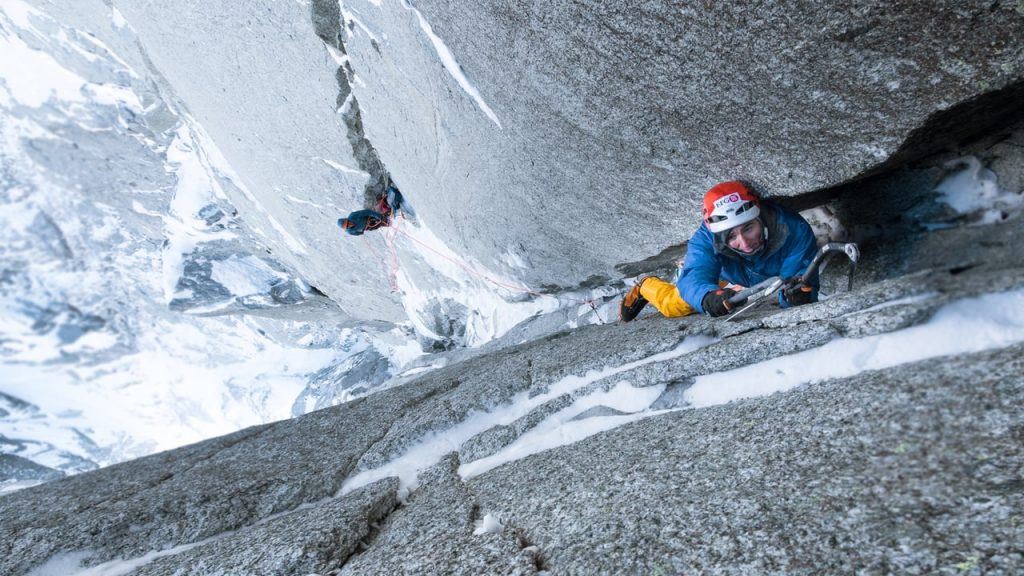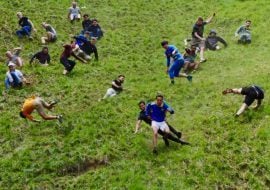Lessons from the Life and Death of Ueli Steck


On April 30th, 2017, Ueli Steck died on the Himalayan peak of Nuptse. The 40-year-old Swiss mountaineer was preparing for an ambitious project on the nearby slopes of Everest and perished while climbing Nuptse as part of his training for that attempt. Steck’s ultimate goal was to complete a traverse from Everest, the world’s highest peak, to the nearby peak of Lhotse, the world’s fourth highest.
This project was a continuation of much of Steck’s work, which included multiple speed records on Eiger and elsewhere in the Alps, two Piolet d’Or awards for his mountaineering achievements, and countless solo ascents of some of the world’s most iconic peaks. There can be little doubt that Ueli Steck was one of the greatest alpine climbers of all time.
Presently it is unknown how Steck fell, as he was climbing alone at the time of his death. It’s possible that we may never know what exactly happened up there, 25,000 feet above sea level. Steck is survived by his wife, Nicole.
For those who are enthusiastic about extreme sports, Steck’s death, and others like it, likely brings out a confusing mix of emotions. It also brings up questions, like what is the appropriate response to a tragedy like this, one that is perhaps all too common in our activities of choice.
It is well-known that extreme adventure sports like mountaineering, backcountry skiing, surfing, and remote mountain biking are all dangerous. For the most part, those of us who undertake these activities are aware, at least on some level, of the elevated risk that they carry. No doubt Steck was acutely aware of it, saying in 2016 that “The risk is constantly there — and you deal with it.”

This raises difficult questions for those who followed Steck’s accomplishments and continue to follow the adventures of others like him. Grief is a natural reaction to this sort of tragedy, but in this case grief feels strange, almost misplaced, for two reasons. First, many of us are skittish about appearing to undermine Steck’s achievement and intentions. There can be no doubt that he knew death was possible, and grief on our part can feel like we are denying the soundness of his judgment.
Yet, if Steck knew he might one day die during an alpine climb, is it disrespectful of us to feel sad for him and his choice? My answer is no. There can be no doubt that, while Steck knew the risks, he had no intention of dying. In fact, training expeditions such as his fateful climb on Nuptse were a critical part of his efforts to mitigate risk on the main event. It’s appropriate to grieve over the passing of a great athlete, if not for his or her sake, then for ours and the loss that we, as a community, have suffered.
Finally, it can feel strange to grieve for someone whom most of us have never met or known in person. Today’s adventurer spreads news of his or her achievements through GoPro videos and personal vlogs, meaning that one-on-one contact with fans is unlikely. However, grief for tragedies that we aren’t personally connected to is completely natural and nothing to be worried about. Psychologists point out that grief for distant events is common and especially occurs when a community feels a sense of loss.
On April 30th, 2017, this community suffered a terrible loss. We can and should grieve for the giant that we lost, but while we do, let us not forget his achievements and the indelible mark that he left on the world.
Related articles:
Two Highs on Mont Blanc
10 Of The Best Treks In Nepal
Last updated on May 7, 2018Have you subscribed to our Newsletter or Podcast? Listen to us on Apple Podcast and Spotify and follow us on Facebook, Instagram Twitter and YouTube.








